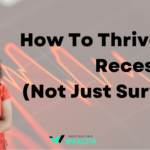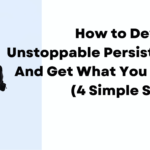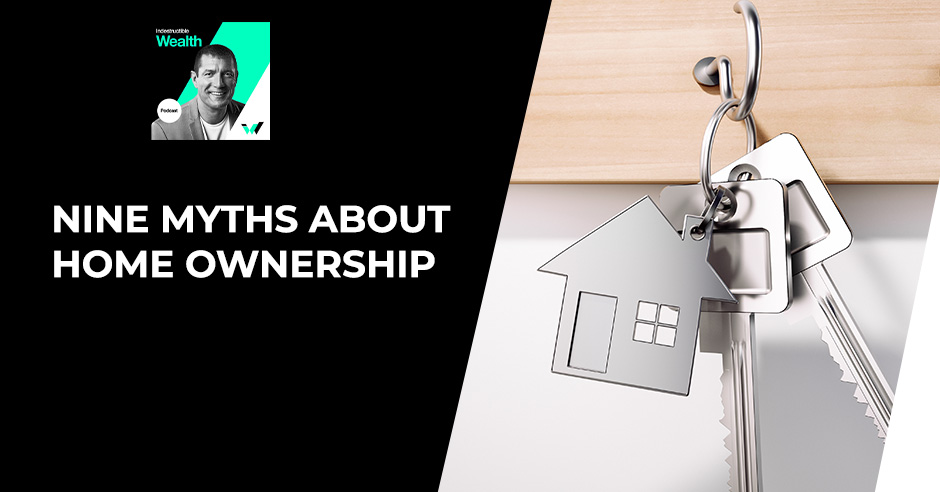
“You will graduate high school. You will attend college. You will get a good job. You will get married… Next, you will purchase an enviable family home where you will raise your children. Eventually, your reward will be to retire on the beach with your grandchildren.”
No one has probably said this to you in these exact words, but you may recognize the progression of expectation as an unspoken part of the culture we all swim in.
Home ownership has long been a centrifugal force of the “American Dream.” In this episode, I break down when that myth still makes sense, and how to know when it doesn’t. Tune in!
—
Table of Contents
Listen to the podcast here
Nine Myths About Home Ownership
In this episode, we’re going to debunk the nine most common myths regarding home ownership. What spurred this on is I have finished the financial course called The Indestructible Wealth Builder. It’s an online video-based learning environment filled with nine hours of incredible step-by-step content on how to master the game of money and build wealth and multimillion-dollar portfolios. I go through multiple steps, including assets to buy to create passive income, assets to buy to create big jumps in wealth, like capital gains type of income, how to think about taxes and charitable giving, and automation. There’s so much value packed into this course. It’s not quite ready, so I have people going through it in the beta version.
I don’t have it all the way completed. It’s about 90% to 95% there, but they’re providing me feedback on things they enjoy and could improve. Once everybody gets through the beta version, I will be launching this and making it available to the public at a very value-stacked price. As people go through it, they fill out an onboarding survey for me to get to know them, their goals, and their financial situation. They can share as much or as little about that as they feel comfortable doing. Everything is extremely private. I also understand that dynamic in terms of failure. If you don’t want to share, I get it. For those that are sharing their financial information and their questions twice know the concept or the question has come up in relation to aspects of buying a home or paying off the mortgage on a home and what that looks like.
I wanted to take this opportunity because I’m guessing if I’ve already seen it with 2 out of 5 people going through beta that the majority of readers here have some level of questions or maybe not quite understanding the pros and cons of buying a home, especially in this crazy seller’s market nowadays. I want to go through this with you. I haven’t asked this for several episodes, but I’d appreciate that if you share this show and are getting value from it, I appreciate a share. Back in December, there were about three weeks where I didn’t make an episode. I was busy writing my book and super hyper-focused on that. I was creating my video course. I neglected the show. It was a mistake, but the algorithm punished me for that three weeks off because my downloads have not been the same since, and there’s nothing else different I’m creating the same awesome content that I was before.
If you could give me a five-star review, that would help boost me back up and pushes this out to more audience. In addition, if you can share this on social media, send it to people who would make sense for. I believe in what I’m putting out there with the free content I provide. There are other financial services and institutions that charge thousands and thousands of dollars for this same value you’re getting for free. In fact, I’ve been on that other side where I’ve paid thousands and thousands of dollars to get this information. In fact, the tax information that I’ve released, any of the picks I’ve given you in terms of stocks or crypto have all cost me quite a bit of money to get in terms of research.
Many people think of their homes as investments, and they are absolutely not. In fact, they are your greatest liability. Share on XI would appreciate the value exchange. It takes not even a minute or two to be able to do those two steps. It would be awesome. Regardless of whether you do that or don’t, I’m going to sit here and crank out value for you. Homeownership is often considered an important part of living the American dream. We finish school, get married, buy a home, and start a family. That’s always the proverbial, “This is the American dream. This is the process of what I’m supposed to do.” Homeownership also comes with some biases and information that is not exactly true and doesn’t line up with the numbers in reality.
For example, a lot of people think of their homes as investments. They are absolutely not. In fact, they are your greatest liability. They’re consumption items and much less productive assets than we choose to believe. In fact, an asset, according to the basic definition by Robert Kiyosaki of Rich Dad Poor Dad thing, an asset is something that pays you. A liability is something that costs you typically on a monthly basis. We’ve owned our home. We love this home. It’s our dream home. We’ve been here now for several years. It’s hard to believe, but it has been an incredible liability in terms of the outgoing cashflow when you consider all the costs.
When we go to sell it and realize a profit, only then, at that moment, does it convert and become an asset. That conversion from a liability to an asset is unknown, not guaranteed, and unlikely. Not only that you get your principal and interest payments, but you got taxes, insurance, utilities, maintenance, repairs, and on top of that, any improvements and remodels that you want to do. Over the course of time, you’re always going to want to be updating your home to keep it current. Those things don’t always provide a return on investment or a profit. It’s not a guarantee that you’ll make money on your home. Ask everybody from 2008 to 2009 if it was a guarantee. Those two years greatly debunked the myth that your home is an asset, yet still, people think of it as an investment.
You look at the SEC’s definition of an accredited investor. An accredited investor is one that’s able to do private placement deals that are bigger deals and syndication deals like what I offer in my self-storage fund that I have coming out with a new fund offering. That’s my number one favorite investment. You have to be accredited to do that. What’s an accredited investor? You have to either $200,000 for 2 years in a row. As a single filer, you have to make $300,000 filing jointly or $1 million outside of your primary residence. Why is that? SEC doesn’t consider your home as an asset. Otherwise, if they did, they’d say, “If you have $1 million of equity in your primary residence, you’re $1 million net worth and accredited,” but they don’t do that. That is the reason why we can reasonably conclude.
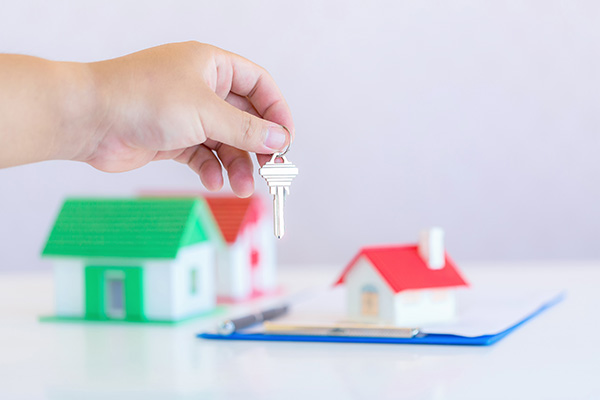
Home Ownership Myths: Home ownership is often considered an important part of living the American dream, but it comes with some biases and some information that is not exactly true.
There are a lot of other ancillary expenses, such as we need additional furniture or maybe another car or the home’s location. There are a lot of ancillary expenses that also go along with the home. One of my business partners bought this home that they wanted to be in. It’s a dream home for them. They’re a young high earners couple with four kids and want to put a pool in that house. That’s not an ancillary expense, but kind of. That’s something that is very costly to do. I understand the reason why. You want to enjoy the home to the max while you can with your young children, but putting a pool in is an absolute liability.
Renting Is Throwing Money Away
There are liabilities that are great things to spend money on. I’m not against all liabilities. Don’t misinterpret me there. Those are the type of expenses that, in addition to the purchase price of the home, you’re going to want to do all these things, add up, and by putting in a pool, you’re not, in all likelihood, going to get that back out when you go to sell. I want to talk to you guys. Let’s go through these real common real estate myths. I want to help you debunk these. First off, number one, renting is throwing money away. This is a giant misconception. They say you can’t build equity in a home by renting and take advantage of the mortgage interest tax deduction. Therefore, you’re lighting money on fire. This is simply very not true.
For one thing, you can build equity anywhere, not just in a home. With the cash you’ve set aside for a down payment on a house, you could easily convert and apply that toward building equity in a long-term diversified asset like in the stock markets, crypto markets, other real estate rental properties, or even syndication-type properties. The house may or may not pan out as a good investment, as I talked about. There is a mortgage interest deduction, but there are also a lot of unrecoverable costs associated with purchasing a home. When you look at that, you add up all the monthly costs of home and the interest that you pay that you get to deduct. Interest is high, and the mortgage is small. The principal payment is small. You get a bigger deduction in the beginning, but that’s an unrecoverable cost.
Whereas the principal payment, which you start off within your home, usually starts off lower in the beginning and escalates by the very last payment. It’s a 100% principal payment. That principal payment or portion is building additional equity in your home. That’s certainly important. Most people never get there. Most homes don’t make it past the seven-year mark. That seven-year mark incidentally is where you start to get the advantages of the principal pay down and that building of that equity. In addition, you have other unrecoverable costs, like property taxes, homeowners insurance, and HOA fees. There’s regular maintenance on the property. These are all regular costs that do not increase the value of your property but are often not considered when you make a home purchase.
Home is a consumption item, not an investment. You live there. There's going to be wear and tear. Share on XYour Home Is An Investment
Number two, your home is an investment. We already covered this. Home is a consumption item, not an investment. You live there. There’s wear and tear. You make changes to the property to please yourself and enjoy your property, your home, not because someone else may come along and buy it at a higher price. The sooner you start thinking of your home as a consumption item rather than an investment, the sooner you’re going to be able to make rational choices about where you’re going to live.
Your Home Is A Forced Savings Account
Number three, your home is a forced savings account. Your home is a forced spending account. I see this over and over again. I have not been immune to that either. We purchased this home, and we came in. Even though the home was designed exactly the way we wanted it, there were still a lot of things that we added on. We completely redid the storage room and put in a game room and sauna room down there. We essentially took half the storage room, converted it, and remodeled it. We put in a new theater-type setting with the whole entertainment surround sound system. We took on the pool. We had to get a whole new heater. That was super expensive. We put in a generator.
There were a lot of things that we didn’t have to do. We wanted to do them because we wanted to enjoy the home more. We weren’t thinking, “We’re going to put this money into the home, and this is going to force the value up eventually.” We’re never doing that for that reason. In fact, all of the things we’ve done, in all reality, are doing nothing more than probably maintaining the value of the home as it goes through the wear and tear depreciation factor.
House Prices Only Go Up Because They’re Not Making Any More Land
Number four, house prices only go up because they’re not making any more land. In the financial crisis of 2008, we’re hearing less often that house prices only go up. Up until that point, we did. You can lose money on your home. In my first two homes, both those homes did not appreciate beyond what we paid for them. In terms of the value, the house did not rise. When we ended up selling the property because of selling costs, like commissions to realtors, closing costs, and all of that, we ended up taking pretty gigantic hits on both the first two houses that we owned because not only the selling costs added up, but all the things that we put into the home, like kitchen remodel, new carpeting, and all the things, like repainting the whole house, interior, and exterior, none of that we got back. That was even further creating losses on those two homes.
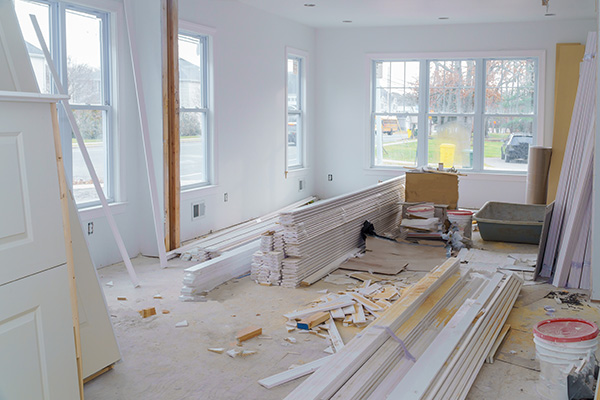
Home Ownership Myths: Renovations cost more than the value that they add.
Mortgage Interest Deduction Makes It Cheaper To Own
Number five, mortgage interest deduction makes it cheaper to own. I believe that markets are pretty efficient. They can be irrational at times, and that creates buying opportunities. Most of the time, they’re pretty efficient. The mortgage interest deduction is, in all likelihood, baked into the price of both purchases and rentals. It may feel like you’re getting the deal because you could see your taxes decline as a result of owning a home, but that does not necessarily make owning cheaper than renting.
Renovations Pay For Themselves
Number six, renovations pay for themselves. We think if we spend $60,000 updating our kitchen, most kitchen remodels, if you have an outdated kitchen, are pretty saucy. Renovations cost more than the value that they add. This does not mean you shouldn’t renovate your home, especially if you plan on staying there for multiple more years, but you must realize that renovations, like the home itself, are still consumption items. You remodeled because you wanted to. You saved for it and planned for it. Sometimes the renovations increase the value of the home. Most of the time, renovations just help you to maintain the value of your home by keeping it up to date with current market trends.
Your Want To Pay Off Your Mortgage As Fast As You Possibly Can
Number seven, you want to pay off your mortgage as fast as you possibly can and get aggressive in making additional payments. This is the one I probably disagree with the most. Why is that? It’s opportunity costs. Now, interest rates are so historically low. There are people getting mortgages. I talked to somebody that got a 30-year mortgage for 3%. That’s crazy. I don’t expect that trend to continue because the Fed has said that they are going to raise rates four times this year, which is what caused the stock market and crypto markets to see some pretty big drops.
Especially if you are going through my platform, you’re learning how to be a great investor and make the right moves with your portfolio, then opportunity costs rule the day. What does that mean? For example, my mortgage interest rate is 4%. If I paid that off with cash, all that cash is sitting in my home, saving 4%, but I’m not able to invest that into other equities, cryptos, and properties that create much larger than 4% returns.
There's nothing wrong with buying a home. Just make sure you weigh both sides of that and make the right decision for your family. Share on XOn my self-storage syndication deal, the average annual returns over the past ten years have been 25%. That’s across 110 deals with the guys that I invest with. It’s 25% annualized returns. That means in four years, your money’s doubling. If I pay off my mortgage with 4% interest, that means that money is not available to be put into these other assets that can create these much larger returns. Let’s give you an example. Let’s say it’s 25% annualized returns. You take away 4% of the opportunity costs. That means I’m outpacing by not paying off my mortgage early and not making anything other than the minimum payments. I’m outpacing that by 21%.
Everybody has different risk tolerance. I understand. For some, the desire is you don’t feel that you can outpace 4% comfortably, adamantly want to pay off your home and be debt free. I’m not going to argue with that, but financially, the numbers don’t make sense. They don’t justify doing that. It’s going to make it a tough proposition for you to create a multimillion-dollar net worth and portfolio and retire young financially free if you have all this money tied up in your home instead of being deployed and having a shot at making much larger returns.
Buy At The Maximum Of What You Can Afford Because You’re Using Other People’s Money Through A Bank Loan
Number eight, you want to buy it the maximum of what you can afford because you’re using other people’s money by taking a loan from the bank. That doesn’t make sense at all. More debt on your balance sheet does not guarantee that more equity will follow you. I sometimes hear from people on my platform that businesses have an optimal level of debt that allows them to grow, and therefore, they should too. You’re not taking on debt to grow your business. You’re doing it because you want to buy a specific house. The larger the debt only magnifies the risk that you’re taking on.
Buy At The Maximum Of What You Can Afford Because Your Income Will Increase
The biggest problem is that when you go to purchase cars or homes, the big question to ask is not, “Should I rent? Should I buy? Should I lease? Should I own a home or a car?” The big question you should be asking is, “How much car or home am I buying? How big is the monthly payment I’m responsible for in proportion to my income?” That leads to point number nine. Buy the maximum of what you can afford because your income will increase. You guys know that there is no guarantee of your income increasing. If you’re an entrepreneur, there’s a high probability that your income will probably decrease at some point.
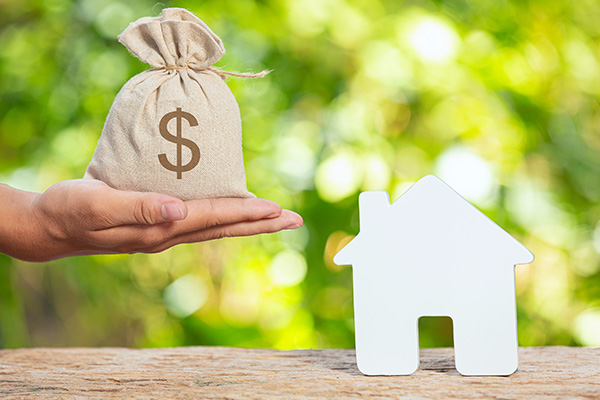
Home Ownership Myths: Buying a home makes sense if you plan on being and living in the same place. Just be careful of the total payment relative to the income that you’re earning.
You’re going to see ups and downs, ebbs and flows, and cyclical markets within your business. I have four companies. One of them was created not long ago, so that doesn’t have that big of a track record yet. The other three I have all had their ups and downs in income. In fact, I’ve seen some remarkable swings in all those businesses where I’ve made huge amounts in one month, and a few months later, it’s not even close. That’s the challenge, especially with being an entrepreneur. You could be an employee, and your income could drop. You could have some type of a health challenge, your spouse could have a health challenge, or there could be some type of event in your life that causes you to have to stop working for a period of time. Your income drops when that happens.
You want to be able to be conservative with the amount that you’re spending. I know this is very tough. The optimal level is that 10% of your total income would go toward your home. That’s optimal. I know that’s difficult. The current recommendation of 30% to 35% of your total income should go towards your home is way too high. It prevents you from being able to have any investible dollars going out each month. The smarter thing is around 20% or less. That lets you make $100,000 a year, and $20,000 of that should go towards your total home expenses, including everything, taxes, mortgage, insurance, principal and interest payments rate, your maintenance costs, and homeowners association.
If you’re under 20%, you’re going to have a lot more investible dollars that you’re going to be able to deploy to be able to increase your net worth and equity. Those are the nine common myths. You might think I’m trying to dissuade you from buying a home. I am not at all. If you plan, especially if you plan on being in a home for more than seven years, the numbers typically show that it’s a smart idea to buy a home. The problem is so many people buy a home, and, in all likelihood, they’re only going to be there for 2, 3, or maybe 4 years. Therefore, the selling costs, which is when you go to sell your home, you have to pay costs to sell it. Even if you do for sale by owner, you still have selling costs.
It’s not as much if you don’t use a listing agent and go through the MLS system, but you still have selling costs. Most of us don’t do for sale by owner. We get an agent and let them handle it. They’re professionals. They can handle all the paperwork, the showings, and all of that. Most of the time, that’s very justified, and they earn their money. However, that is over 2, 3, or 4 years of owning a home. Typically, they don’t appreciate fast enough to be able to offset those selling costs. In other words, the increase in the value of the home has to exceed your selling costs. That’s why after 7 years, and 10 years is optimal, if you plan on being and living in the same place, buying a home makes absolute sense. You just want to be careful of the total payment relative to the income that you’re earning.
The Lazy Asset
Equity in a home is what we refer to as a lazy asset. The faster that you pay off the equity in your home or pay down the mortgage, that creates and increases the equity that you have. Let’s say you buy your home for $300,000 and put 20% down. You put $60,000 in cash down to avoid PMI insurance. Principal Mortgage Insurance is what that stands for. That’s what they charge you because you’re a little bit riskier because you didn’t put as much of a down payment down. You don’t have as much equity, so you’re going to be more willing to walk away if the home drops in value, lose your job, or whatever, and you stick it to the bank. That’s why they’re charging you that PMI.
Let’s say you paid $60,000. Now you have a $240,000 mortgage. After ten years, you paid down another $40,000, and you’re now down to a $200,000 loan balance on a $300,000 asset. Let’s say the property didn’t go up in value. In all likelihood, it will, but we’ve seen it where it doesn’t work out that way. You now have $100,000 in equity. That money is just sitting there. It’s a lazy asset. That equity is not making you anything. What I do is pull out a home equity line of credit. This is how I initially got started in real estate rental investing and built up my portfolio that I have now. I got a home equity line of credit. You can borrow up to 90% of the equity that’s in your home. I got that line of credit. I then use that line of credit to put down payments on rental properties.
I’m now making 10%, 15%, to 20% on that money instead of it sitting there in the home that’s not doing anything for me and not increasing my net worth. That’s what we call a lazy asset. That’s the primary reason that I recommend not to make aggressive extra payments to pay down your mortgage sooner. The other reason that I recommend that you don’t pay it off quicker is because of the valuing of our dollar. As our government continues to print more money, more stimulus, and more quantitative easing, that’s dropping the value or the purchasing power of your dollar. By extending out your mortgage as far out as you can, you’re paying off that future debt at lower valued dollars.
This is important that you understand. It’s critical to building wealth to understand this concept. This is why you want that low-interest debt to ride out as far as you can and take that money instead of paying off that debt aggressively invested and create that bigger spread and outpace those percentages. I hope this helps you guys. In nowadays market, I don’t have a total opinion on, “Does it make sense to buy a home in the market nowadays?” I don’t know. The market’s crazy. I would tend to say now’s not the best time. It’s okay to rent, but with the supply of houses across the country at Lowe’s and the demand for houses pretty high still, I don’t have a crystal ball. I don’t know if we’re going to see any housing crash. It’s possible based on the credible frenzy that we’ve seen with properties that hit the mark and get 10 to 20 offers overnight.
I saw that on a rental property I sold in Arizona. I got thirteen offers in one weekend on a C Class rental property. It was crazy. That tells me the market is pretty saucy, but I don’t know and cannot predict with any accuracy if we’re in a bubble or not. The best move is to do what makes sense for you financially, not take on too big of a liability, buy too much house, and not necessarily buy a house because people told you to because you get the interest rate deduction. You want to factor all of those things in and how long you’re going to plan on being there.
If you’re not going to be there and are not sure how long you’re going to be there, there’s nothing wrong with renting. There’s nothing wrong with buying. Make sure you weigh both sides of that and make sure you’re making the right decision for your family. Try to, as much as you can, remove the emotional component of, “We have to own a home. This is the American dream.” You can live the American dream a little bit later by owning a home. I don’t think that, overall, if you rent, you’re burning money and dollar bills, and throwing them out the window.
I don’t believe that at all because there are pros and cons to both ways. I love to know any feedback on this episode. If you have any questions, feel free to reach out on Instagram. DM me. I’ll be happy to answer any questions. I’ve given you a lot to absorb and think about on this topic. With that, you guys have a great day. Thanks so much for joining me again. Make sure to please consider giving me a five-star review if you have gotten a lot of value from the show. Make sure to share it with your friends and tell your friends about me.
Important Links


